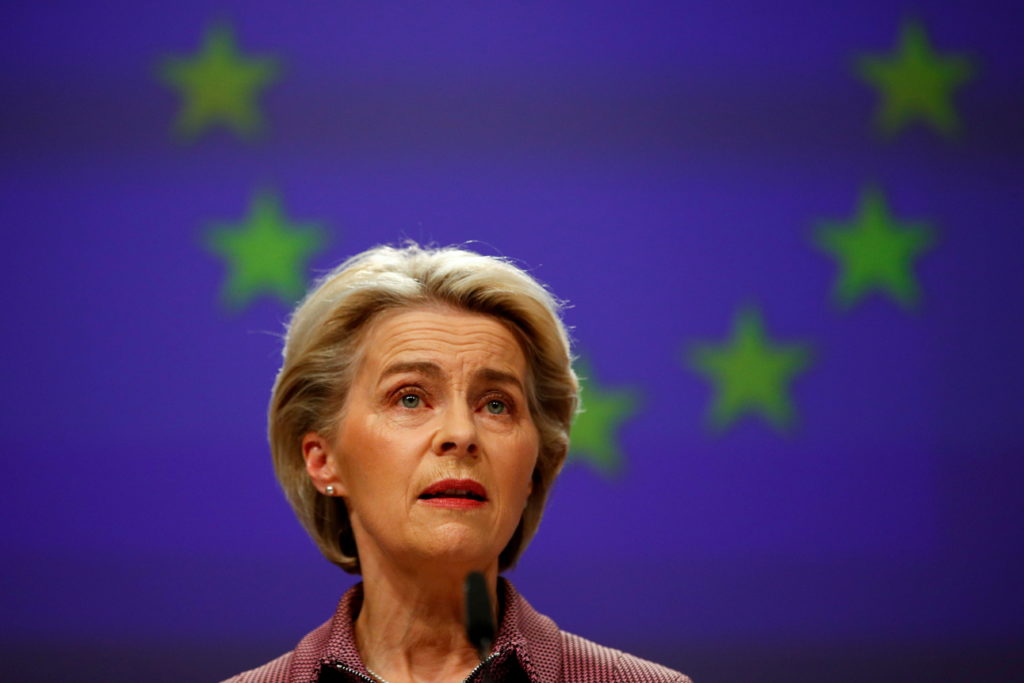BRUSSELS (AP) — The European Union’s chief executive called Thursday for a show of climate leadership ahead of two major international meetings focused on curbing global warming, warning that world leaders face “a moment of truth.”
“What we need is, first of all, leadership,” European Commission President Ursula von der Leyen said before she heads to a weekend summit in Rome of the Group of 20 most developed nations. The 26th U.N. Climate Change Conference, known as COP26, starts Sunday in Glasgow, Scotland.
“We need leadership for credible commitments for decarbonization to reach the goal of net-zero mid-century. But we also need sufficient commitments to really cut the emissions this decade,” von der Leyen told reporters in Brussels.
A new report by the U.N. Environment Programme has found that fresh pledges by governments to cut emissions are raising hopes but aren’t strict enough to keep global warming from exceeding 1.5 degrees Celsius (2.7 degrees Fahrenheit) by the end of the century.
It concluded that recent announcements by dozens of countries, including the 27-nation EU, to aim for “net-zero” emissions by 2050 could, if fully implemented, limit a global temperature rise to 2.2 degrees Celsius (4 F). That’s closer but still above the less stringent target agreed upon in the 2015 Paris climate accord of capping global warming at 2 degrees Celsius (3.6 F) compared to pre-industrial times.
WATCH: U.N. panel paints grim future for humanity without drastic action to combat climate change
Von der Leyen said the world remains “on a very dangerous course” and that leaders must take immediate steps to limit the global temperature rise to less than 2 degrees.
“It’s not a question of 30-40 years. It’s now. It’s this decade where we have to get better, otherwise we risk to reach irreversible tipping points,” she said.
Leaders, diplomats, scientists and environmental activists meet in Glasgow from Oct. 31-Nov. 12 to discuss how countries and businesses can adjust their targets to avert the more extreme climate change scenarios that would result in a significant sea-level rise, more frequent wild weather and more droughts.
On Tuesday, U.N. Secretary-General Antonio Guterres warned that global warming could pose “an existential threat to humanity.” He said that he would use his trip to the G20 summit to press all countries, including major emerging economies such as China, to do more on climate change.













































